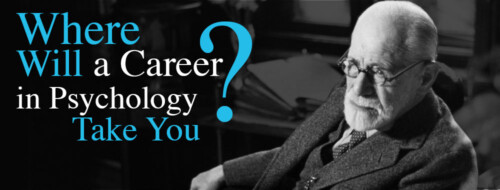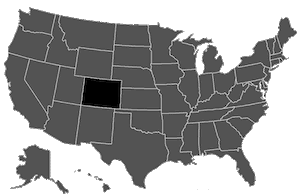
A psychology degree opens pathways to careers across counseling, therapy, research, education, and business. Entry-level positions start with an associate or bachelor's degree, while licensed psychologists and clinical therapists require master's or doctoral degrees. Career options range from school counselors and social workers to clinical psychologists and organizational consultants, with professionals working in hospitals, schools, private practices, corporations, and community agencies.
Careers in Psychology
Psychology isn't just about therapy sessions and clinical diagnoses. It's the science of understanding human behavior, and that knowledge is valuable across nearly every industry. Whether you're drawn to helping individuals overcome mental health challenges, conducting groundbreaking research on human cognition, or applying psychological principles to improve workplace productivity, a psychology degree can take you there.
The field offers remarkable flexibility. Some professionals work directly with clients providing therapeutic support, while others analyze data in research labs or consult with Fortune 500 companies. What connects all these careers with a psychology degree is a deep understanding of what makes people think, feel, and behave the way they do.
This guide breaks down the primary career paths available to psychology students, the education requirements for each, and how to choose the right path for your goals and interests.
Why Choose a Career in Psychology?
Psychology careers combine intellectual challenge with meaningful impact. You're not just earning a paycheck; you're helping people navigate life's most challenging moments, advancing scientific understanding of the human mind, or making organizations more effective and humane.
The field is growing. According to the U.S. Bureau of Labor Statistics, employment of psychologists is projected to grow 6% through 2032, faster than the average for all occupations. Related fields like mental health counseling and marriage and family therapy are growing even faster, with projected growth rates of 18% and 15% respectively. For specific career details and salary information by state, explore our comprehensive psychologist careers guide.
Career options span a broad spectrum. Professionals work in schools, hospitals, rehabilitation centers, private practices, research universities, government agencies, corporations, and non-profit organizations. Some specialize in working with children, while others focus on veterans, athletes, or corporate executives. The diversity of settings and populations means you can find a niche that aligns with your passions and strengths.
Psychology careers also offer intellectual variety. You might spend your morning conducting therapy sessions, your afternoon analyzing research data, and your evening teaching a college seminar. The work keeps you learning and growing throughout your career.
Counseling Careers
Counselors work in schools, hospitals, community agencies, and private clinics, providing support to clients facing various life challenges. These professionals use evidence-based therapeutic techniques to help people improve their emotional well-being, develop healthier coping strategies, and achieve their personal goals.
Common counseling specializations include:
- Career counselor: Helps professionals identify career paths, set achievable goals, and develop job search strategies. These counselors assist with resume building, interview preparation, and career transitions, working with everyone from recent graduates to mid-career professionals seeking change.
- Grief counselor: Provides therapeutic support to clients coping with loss, trauma, or significant life changes. These specialists create safe spaces for emotional processing and help clients develop healthy grieving patterns and coping mechanisms.
- Life coach: Works with clients to achieve personal, professional, and social goals. Life coaches help people identify obstacles, build confidence, establish healthy habits, and create actionable plans for positive change.
- School counselors: Support students' academic achievement, social development, and emotional well-being. These professionals work with students individually and in groups, addressing everything from college planning to peer relationships and family challenges.
- Substance abuse counselors: Partner with individuals battling addiction to identify triggers, develop recovery strategies, and maintain sobriety. These counselors use various therapeutic approaches and often coordinate with medical professionals and support groups.
Most counseling positions require at least a master's degree in counseling, psychology, or a related field. To start a career in counseling, you'll need to complete supervised clinical hours and obtain state licensure. Requirements vary by state and specialization, so it's essential to find a psychology program that offers the specific coursework and clinical training your state requires.
Therapist Careers
While the terms "counselor" and "therapist" are often used interchangeably, therapists typically focus on treating diagnosed mental health conditions and psychological disorders. Both use evidence-based therapeutic techniques like talk therapy, cognitive-behavioral approaches, and other specialized modalities to support clients' mental health.
Popular therapy specializations include:
- Applied behavioral analyst (ABA): Works primarily with individuals on the autism spectrum, using behavioral interventions to improve communication, social skills, learning abilities, and adaptive behaviors. ABA therapists develop individualized treatment plans and track progress through careful data collection.
- Cognitive-behavioral therapist (CBT): Helps clients identify and change unhealthy thought patterns that contribute to emotional distress and problematic behaviors. CBT therapists teach practical coping skills and problem-solving strategies that clients can use independently.
- Creative arts therapist: Uses artistic expression as a therapeutic tool, incorporating art, music, dance, or drama into treatment. These professionals help clients process emotions, reduce stress, and develop self-awareness through creative outlets.
- Marriage and family therapist: Provides counseling to couples and families working through relationship challenges, communication problems, or significant life transitions. Licensed marriage and family therapists help strengthen relationships and improve family dynamics.
Most therapist careers require a master's degree at minimum, though some pursue doctoral training. After completing your graduate program, you'll need to accrue supervised clinical hours as specified by your state's licensing board before you can test for your professional license. Some therapist careers also require specialized certifications beyond basic licensure.
Psychologist Careers
Psychologists hold doctoral degrees (Ph.D. or Psy.D.) and are trained to diagnose and treat mental health disorders, conduct psychological testing, and engage in research. While some psychologists work in clinical settings providing therapy, many pursue careers in research, academia, or specialized applied fields.
Psychology specializations include:
- Clinical psychologist: Diagnoses and treats individuals with mental health disorders, from anxiety and depression to more severe conditions like schizophrenia or bipolar disorder. Clinical psychologists conduct comprehensive psychological assessments and provide evidence-based treatment.
- Industrial-organizational psychologist (I/O): Applies psychological principles to workplace challenges, helping organizations improve hiring practices, boost employee morale, increase productivity, and develop effective leaders. I/O psychologists work in corporate settings, consulting firms, or academic research.
- Forensic psychologist: Works at the intersection of psychology and the legal system, conducting psychological evaluations for courts, consulting on criminal cases, assessing competency to stand trial, and providing expert testimony.
- School psychologist: Provides psychological services within educational settings, conducting assessments, developing intervention plans, supporting students with learning or behavioral challenges, and helping schools respond to crises.
- Sports psychologist: Works with athletes to enhance performance through mental skills training, stress management, visualization techniques, and recovery from injury. Sports psychologists help athletes optimize their psychological well-being to achieve peak performance.
- Neuropsychologist: Studies the relationship between brain function and behavior, often working with patients who have suffered brain injuries, strokes, or neurological diseases. Neuropsychologists conduct specialized testing and develop rehabilitation plans.
Most psychology careers require a doctorate, though the specific degree depends on your goals. A Psy.D. (Doctor of Psychology) emphasizes clinical practice, while a Ph.D. (Doctor of Philosophy) focuses on research and often includes training for academic careers. Both paths typically take 5-7 years beyond the bachelor's degree, including dissertation work and a year-long predoctoral internship.
Social Worker Careers
Social workers advocate for vulnerable populations, connect individuals and families with essential services, and address systemic social issues. These professionals need strong psychology backgrounds to understand trauma, mental illness, and human behavior, as they often work with marginalized or at-risk communities.
Social work specializations include:
- Child and family social worker: Protects children from abuse and neglect, works with foster care systems, supports families in crisis, and advocates for children's well-being. These professionals investigate reports of abuse, arrange placements, and coordinate services for at-risk families.
- Licensed clinical social worker (LCSW): Provides psychotherapy and mental health services, diagnosing and treating mental health conditions. LCSWs develop treatment plans, conduct therapy sessions, and often work in hospitals, clinics, or private practice.
- School social worker: Addresses students' social, emotional, and behavioral needs, connecting families with community resources, developing intervention plans, and supporting students facing challenges like homelessness, abuse, or family instability.
- Healthcare social worker: Helps patients and families navigate the healthcare system, coordinating care, connecting people with resources, and providing emotional support during illness or medical crises.
- Mental health and substance abuse social worker: Assists individuals dealing with mental illness, addiction, or both, providing counseling, developing treatment plans, and connecting clients with appropriate services and support networks.
Some entry-level social work positions accept candidates with bachelor's degrees in social work (BSW) or psychology. However, most clinical roles and all positions requiring licensure need a master's in social work (MSW). To start your career as a social worker, you'll complete supervised field placements during your degree program and then pursue state licensure.
Other Careers with a Psychology Degree
Psychology degrees prepare you for careers far beyond clinical practice. Understanding human behavior, motivation, decision-making, and communication creates value in virtually every industry. Your training in research methods, data analysis, and critical thinking translates across sectors.
Business and Corporate Careers
Many organizations recognize that understanding people is essential to business success. Psychology graduates work in:
- Human resources management: Recruiting talent, managing employee relations, developing training programs, and creating positive workplace cultures
- Marketing and advertising: Understanding consumer behavior, developing persuasive campaigns, and conducting market research
- User experience (UX) research: Studying how people interact with products and technology to improve design and functionality
- Executive coaching: Working with business leaders to develop leadership skills, improve decision-making, and achieve organizational goals
- Organizational development: Helping companies improve efficiency, communication, and employee satisfaction
Education and Research Careers
- College professor: Teaching psychology courses, conducting research, and mentoring students (requires Ph.D.)
- Research scientist: Conducting studies on human behavior, cognition, or development for universities, government agencies, or private research firms
- Special education teacher: Working with students who have learning disabilities or developmental challenges
- Academic advisor: Helping college students select courses, plan careers, and navigate academic challenges
Legal and Criminal Justice Careers
- Probation officer: Supervising individuals on probation, developing rehabilitation plans, and connecting them with services
- Victim advocate: Supporting crime victims through the legal process and connecting them with resources
- Jury consultant: Applying psychological principles to jury selection and trial strategy
Healthcare and Medical Careers
- Psychiatric technician: Working in psychiatric hospitals and facilities to provide care for individuals with mental illness
- Case manager: Coordinating care and services for patients with complex medical or mental health needs
- Rehabilitation specialist: Helping individuals recover from injuries or adapt to disabilities
Psychology Degrees
Your career goals determine which psychology degree you'll need. Some careers welcome bachelor's degree holders, while others require doctoral training. Many students find value in pursuing an online psychology degree that accommodates work schedules and other commitments while building toward their professional goals.
| Degree Level | Duration | What You'll Learn | Career Options |
|---|---|---|---|
| Associate Degree in Psychology | 2 years | General education courses plus introductory psychology classes covering fundamental theories, research methods, and human development. Often serves as a stepping stone to a bachelor's program. | Psychiatric technician, case management aide, research assistant, human services assistant. Most graduates continue in bachelor's programs. |
| Bachelor's Degree in Psychology | 4 years | Foundation in psychological research methods, statistics, behavioral management, cognitive processes, developmental psychology, and social psychology. Many programs allow specialization tracks. | HR specialist, marketing analyst, case manager, research assistant, behavioral health technician, probation officer, career counselor (non-licensed). |
| Master's Degree in Psychology | 2-3 years | Advanced study in a specific area (clinical, counseling, school, forensic, I/O psychology). Includes supervised practicum or internship experiences. A research thesis is often required. | Licensed counselor, marriage and family therapist, school psychologist (some states), applied behavior analyst, I/O psychologist, research coordinator. |
| Doctorate in Psychology | 5-7 years | Ph.D. emphasizes research and preparation for academic careers. Psy.D. focuses on clinical practice. Both include comprehensive exams, a dissertation, and a year-long predoctoral internship. | Licensed psychologist, university professor, research scientist, neuropsychologist, clinical director, forensic psychologist, expert consultant. |
The right degree depends on your specific career goals, time commitment, and financial investment you're willing to make. Clinical practice requiring independent diagnosis and treatment generally needs a doctorate, while many rewarding counseling and applied positions require only a master's degree.
How to Choose the Right Psychology Career Path
With so many options, choosing your specific path can feel overwhelming. Here are key factors to consider:
Consider Your Interests and Strengths
Do you prefer working directly with clients or analyzing data? Are you drawn to children, adults, or specific populations like veterans or athletes? Do you want to focus on mental health treatment or apply psychology in business settings? Your day-to-day satisfaction depends on finding work that aligns with your natural interests.
Evaluate Time and Educational Commitment
Be realistic about how many years you're willing to invest in education. If you're eager to enter the workforce, consider careers requiring bachelor's or master's degrees. If you're passionate about clinical practice or research, doctoral training might be worth the extended timeline.
Research Licensure Requirements
If you're interested in clinical work, research your state's licensing requirements early. Some states allow master's-level licensure for certain positions, while others require doctorates. Understanding these requirements helps you choose appropriate degree programs and avoid costly mistakes.
Consider Work Settings and Lifestyle
Think about where you want to work. Do you prefer the structure of schools or hospitals, or the independence of private practice? Do you want regular hours, or are you comfortable with the variability of clinical work? Different psychology careers offer different lifestyles.
Gain Experience Through Volunteering or Internships
Nothing beats firsthand experience. Volunteer at crisis hotlines, shadow professionals, or secure internships during your undergraduate years. These experiences help you discover what you enjoy and build connections in the field.
Still exploring your options? Learn more about choosing the right psychology school and degree program to match your career goals and lifestyle.
Frequently Asked Questions
What can you do with a bachelor's degree in psychology?
With a bachelor's degree, you can work in entry-level positions like case manager, research assistant, HR specialist, behavioral health technician, or probation officer. Many graduates also use their psychology degree as a foundation for graduate programs in psychology, social work, counseling, law, or business. While you can't practice as a licensed therapist or psychologist with only a bachelor's degree, you can still work in mental health and human services settings in support roles.
How long does it take to become a licensed psychologist?
Becoming a licensed psychologist typically requires 4 years for a bachelor's degree, 5-7 years for a doctoral program (Ph.D. or Psy.D.), and 1-2 years of supervised postdoctoral experience before you can take the licensing exam, though postdoctoral requirements vary by state. This often totals 10-14 years of education and training after high school, depending on your state's specific requirements.
What's the difference between a psychologist, therapist, and counselor?
Psychologists hold doctoral degrees (Ph.D. or Psy.D.). In most states, the title "psychologist" or "licensed psychologist" is legally protected and requires doctoral-level training and state licensure, though the specific protections and scope vary by jurisdiction. Psychologists can diagnose mental health disorders, conduct psychological testing, and provide therapy.
Therapists and counselors typically hold master's degrees. They can be independently licensed in most states as Licensed Professional Counselors (LPC), Licensed Mental Health Counselors (LMHC), Licensed Marriage and Family Therapists (LMFT), or Licensed Clinical Social Workers (LCSW). These professionals provide counseling and therapy services and, depending on their specific license, can diagnose and treat mental health conditions. The terms "therapist" and "counselor" may not be protected titles in all states without licensure, so it's essential to verify credentials. Licensed master's-level clinicians often work independently in private practice, hospitals, and clinics.
Can you become a therapist with an online psychology degree?
Yes, many accredited online programs can prepare you for therapy careers at the master's level, but there are important considerations. Make sure the program is regionally accredited and meets your state's licensing requirements for credentials like LPC (Licensed Professional Counselor), LMFT (Licensed Marriage and Family Therapist), or LCSW (Licensed Clinical Social Worker). Master's-level clinicians can become independently licensed to practice therapy in most states, though they cannot use the protected title "psychologist," which requires a doctorate. Clinical training, internships, and supervised practice hours are essential components, and you'll need to complete these in person even if your coursework is online. Check with your state licensing board to ensure any program you're considering will qualify you for licensure.
What psychology careers don't require a graduate degree?
Many psychology-related careers are accessible with a bachelor's degree, including psychiatric technician, case manager, career counselor (non-licensed), research assistant, HR specialist, marketing analyst, victim advocate, probation officer, and behavioral health technician. These roles often provide valuable experience if you're considering graduate school later.
Is a psychology career worth it financially?
Psychology careers span a wide range of earning potential. While entry-level positions with bachelor's degrees may start modestly, licensed therapists, counselors, and psychologists typically earn solid middle-class incomes. Specialized psychologists, particularly in industrial-organizational, forensic, or neuropsychology, can earn six-figure salaries. The investment in education is significant, especially for doctoral degrees, so it's important to research specific career paths and their earning potential in your geographic area.
Do I need to know what specialization I want before starting a psychology degree?
Not at all. Most students explore different areas of psychology during their bachelor's program before choosing a specialization for graduate school. In fact, keeping an open mind during your undergraduate years helps you discover interests you might not have known you had. Use introductory courses, internships, and volunteer experiences to explore different fields before committing to a specialization.
Key Takeaways
- Psychology careers are incredibly diverse, spanning clinical practice, research, education, business, and social services. Your degree opens doors across multiple industries.
- Education requirements vary widely. Entry-level positions may accept bachelor's degrees, while licensed therapists need master's degrees, and psychologists require doctorates. Research requirements early to plan your educational path.
- Clinical licensure requires significant training, including graduate degrees, supervised clinical hours, and state licensing exams. Each state has different requirements, so understand your state's specific rules.
- Psychology skills are highly transferable. Understanding human behavior creates value in marketing, HR, UX design, education, law, and countless other fields beyond traditional mental health careers.
- Hands-on experience is essential. Seek internships, volunteer opportunities, and practicum placements to explore different career paths, build skills, and make professional connections.
- The field is growing. Mental health awareness is increasing the demand for psychology professionals, with robust growth in counseling and therapy positions.
Ready to Launch Your Psychology Career?
Find accredited psychology programs that match your career goals, timeline, and location. Compare degree options and connect with admissions counselors to take the first step toward your future.

50 Best Psychology Jobs by Degree Level 2025
Psychology degrees lead to 50+ diverse careers across mental health, business, education, and research. Entry-level positions start around $30,000-$50,000 with an associate degree, while specialized roles like clinical psychologist (requiring doctoral degrees) average $96,000. The highest earners in psychology-adjacent fields like I/O psychology and psychiatry can exceed $140,000-$227,000 with extensive...

Types of Counseling: Specializations, Salaries & Career Paths 2025
Quick Answer Counseling careers encompass diverse specializations, including mental health counseling (treating depression, anxiety, trauma), marriage and family therapy (relationship issues), school counseling (academic and career guidance), rehabilitation counseling (disability support), and substance abuse counseling (addiction treatment). Each requires a master's degree and state licensure, with median annual salaries ranging...
What is a PsyD Degree? Programs, Careers & Salary 2025
Quick Answer A PsyD (Doctor of Psychology) is a doctoral degree emphasizing clinical practice and patient care over research. PsyD programs typically take 4-6 years, include extensive supervised clinical training, and prepare graduates for licensure as clinical psychologists with median salaries of $96,100 annually. Most people know psychologists have advanced...
Criminal Psychology Careers: Salary, Jobs & Degrees 2025
Also known as forensic psychologists, these professionals occupy a niche part of the field by helping law enforcement and investigators with important tasks like building psychological profiles, understanding motives, narrowing down potential suspects and examine evidence. They draw upon their psychological studies to understand criminal behavior and actions and help...
How to Become a Forensic Psychologist: Requirements, Salary & Career Guide 2025
To become a forensic psychologist, you'll need a doctoral degree (PhD or PsyD) in psychology with forensic specialization, complete 1-2 years of postdoctoral supervised experience (varies by state), and obtain state licensure. The process typically takes 10-13 years after high school and leads to a median salary of $117,580 according...
Find a Psychology Degree in Your State
It's important to choose a school that offers the degree program that checks all the boxes for you, whether that's providing online courses or offering a combined master's and doctoral program. To get even more detail about degree program options in your area, find your state below. You may also consider online psychology degree options available from many accredited colleges & universities.

- AL Alabama
- AK Alaska
- AZ Arizona
- AR Arkansas
- CA California
- CO Colorado
- CT Connecticut
- DE Delaware
- FL Florida
- GA Georgia
- HI Hawaii
- ID Idaho
- IL Illinois
- IN Indiana
- IA Iowa
- KS Kansas
- KY Kentucky
- LA Louisiana
- ME Maine
- MD Maryland
- MA Massachusetts
- MI Michigan
- MN Minnesota
- MS Mississippi
- MO Missouri
- MT Montana
- NE Nebraska
- NV Nevada
- NH New Hampshire
- NJ New Jersey
- NM New Mexico
- NY New York
- NC North Carolina
- ND North Dakota
- OH Ohio
- OK Oklahoma
- OR Oregon
- PA Pennsylvania
- RI Rhode Island
- SC South Carolina
- SD South Dakota
- TN Tennessee
- TX Texas
- UT Utah
- VT Vermont
- VA Virginia
- WA Washington
- WV West Virginia
- WI Wisconsin
- WY Wyoming
Kickstart Your Psychology Career
Whether you're interested in working with kids, have a passion for advocating for the mentally ill, or want to pursue a lifetime of academic research into the human mind, a career in psychology fits the bill. Your psychology degree can open countless doors, with more industries realizing the value that psychology experts bring to the table. Find the right psychology program for you today and set yourself up for a lifetime of fulfillment and success.
Online Psychology Degree Subjects
Note: Career information and educational requirements are based on national standards and may vary by state. Salary ranges mentioned reflect general industry data, and individual earnings depend on location, experience, specialization, and employment setting. Always verify specific requirements with your state licensing board and prospective employers. Data current as of October 2025.
2024 US Bureau of Labor Statistics salary figures and job growth projections for Clinical and Counseling Psychologists, Industrial-Organizational Psychologists, School Psychologists, Psychologists-All Other; Psychiatric Techs; Psychiatrists; Substance Abuse, Behavioral Health and Mental Health Counselors; Marriage & Family Therapists; and Social Workers are based on state and national data, not school-specific information. Conditions in your area may vary. Data accessed October 2025.









